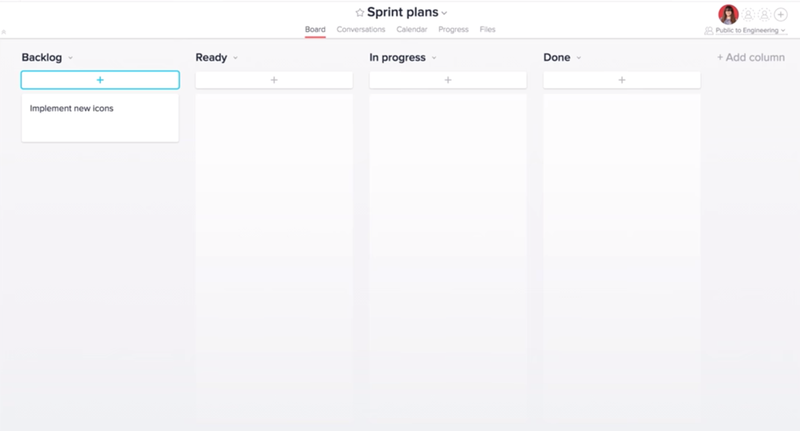
Like all businesses, freelancers are feeling the pressure of staying afloat during a global pandemic. The Ascent has five tips for freelancers during COVID-19.
Freelancers are known for being well equipped to work from home, but remote working during a global pandemic is not business as usual.
Given this, and the fact that major cutbacks across most sectors have sorely affected the freelancing industry, many freelancers have concerns about the viability and future of their businesses. Already, 32% of freelancers have experienced a decrease in demand for their services.
We can’t promise that the next few months will be easy, but there are many work hacks freelancers can implement to help them weather the COVID-19 storm. In this article, we’ll go through five tips for freelancers to help them survive the effects of the coronavirus pandemic.
Here are our top 5 tips for freelancing in a time of crisis:
- Catch up on admin tasks
- Revise your strategy
- Get your tech in check
- Check in with your current and past clients
- Prioritize your well-being
Tip 1: Catch up on admin tasks
First things first: Take this time to tend to the tasks that have built up over the last few weeks or months. Admin chores are among the main drawbacks of freelancing (I think we’re all in agreement on this), but once these are out of the way, you can focus on future-proofing your business against the effects of COVID-19.
Here are a few tasks you might need to take care of right away:
- Track down outstanding invoices: It’s time to get tough with clients who haven’t paid your past-due invoices. Set clear payment terms and establish a date when late fees will be assessed (if you haven’t already).
- Check in with your accounts: Whether you use accounting software or employ someone to take care of your bookkeeping, take some time to look over your accounts. Have you logged and tracked all of your expenses? Have you processed your billable hours? Are you on top of filing your quarterly taxes? Do you have any recurring expenses for products or services you don’t currently need?
- Back up your work: A task we’re all guilty of neglecting, backing up your work is an essential activity that should be undertaken regularly. Uploading all your work to the cloud guarantees you won’t lose anything should your computer system or hard drive fail.
- Start effectively organizing your tasks: Project management tools can be incredibly effective for freelancers who need to plan and organize their admin tasks. In particular, tools that offer Kanban boards are great for visualizing a workflow and helping you organize, schedule, and set reminders for admin tasks.

Asana’s kanban board lets you visually track task progress. Image source: Author
Tip 2: Revise your strategy
Depending on your industry, demand for freelance work might have decreased significantly.
Freelancers whose work is carried out exclusively online may have kept their heads above water (in fact, many have seen an increase in demand as offices close and budgets diminish), while those with jobs that involve interaction with the public have almost certainly hit a brick wall.
If the latter applies to you, it’s time to start thinking how you can shift your business strategy to address the “new normal.” We’ve seen personal trainers flock to Zoom in hordes to direct classes online, while small restaurants and bars have focused their efforts on take-out and delivery service.
While there may not be a complete solution for every freelance position right now, there’s definitely room to pivot your business strategy.
That might include easing up on your niche and taking on more generalized work, taking business online where it makes sense (and marketing yourself there!), or introducing a “coupon” system whereby clients can pay you for future work now and receive a discount.
Tip 3: Get your tech in check
As a freelancer, you likely use a variety of technology tools to help you run your businesses, including accounting software, project management tools, and email marketing software. All this technology can form a significant part of your freelance business expenses.
This is a good time to revisit the tools and platforms you’re using to run your freelance business.
Many platforms have reduced their subscription rates and issued special offers in response to the crisis, so it’s worth getting in touch with a sales rep to see how you might be able to shrink your software costs. Alternatively, you can look into remote tools that offer free versions.
Think about what technology is indispensable to you right now. For example, if your work has pivoted and you meet clients online regularly, you’ll need a solid video conferencing tool that suits your budget without sacrificing desired features.

With Zoom’s free plan, users have access to unlimited one-on-one meetings, a maximum of 100 participants per meeting, and a 40-minute limit on each meeting. Image source: Author
Tip 4: Check in with your current and past clients
Part of freelancing is knowing how to be a good salesperson and prospect for sales. If you’re uncomfortable with this aspect of freelancing, now’s the time to hone your skills. Some of your clients may have less work to offer you, and some may not have any at all.
However, even if they’re not looking for the type of work you typically perform for them, they might still have a gap you could fill. With the high number of layoffs and staff currently on furlough, many industries and businesses will have new opportunities for freelancers.
Ask your current clients whether their needs have changed. In the same vein, reach out to past clients. For example, maybe you worked on menu graphics for small restaurants, and with the recent major changes in the service industry thanks to the coronavirus, these are no longer in demand. However, you could offer to create graphics for their social media platforms or websites.
Create a pitch beforehand that clearly lays out what skills you have (beyond the ones they already know about), make sure your portfolio is up to date, and state your rates.
Tip 5: Prioritize your well-being
You can’t produce good work if you’re not looking after yourself. It goes without saying that this period of time will go down in history as among the most disruptive and damaging to people’s lives and the economy. So it’s vital that, whatever your circumstances, you prioritize your health and well-being.
We’re more digitally connected than ever to friends, family, and work, but it’s important to take some time to switch off. If you can, put your phone, laptop, and other devices away for a period of time each day, and take a walk outside.
Again, if you can, schedule some time that’s just for you, and fill that time with an activity that can help you relax and unwind.
Start prioritizing some time for yourself, and you’ll be far more able to stay focused at work and better positioned to come up with a work plan that suits your home life and your business.
The bottom line
Being flexible and adapting to changes is a key part of freelance life, but there’s no denying that right now, things are tougher than they’ve ever been.
However, these tips will help get you started and motivate you to work out how to pivot your freelance career to suit current circumstances and, of course, maximize your business.
from Freelancing Jobs – My Blog https://ift.tt/Gsnk6hC
via IFTTT

0 Comments